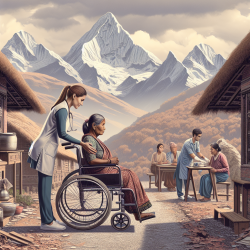The medical field has long been intertwined with systemic racism, perpetuating health inequities that disproportionately affect communities of color. As practitioners, it is crucial to recognize this legacy and actively work towards dismantling it. The research article "Reimagining Medical Education Toward Antiracist Praxis" by Mabeza and Legha (2023) offers a bold vision for transforming medical education through antiracist frameworks.
The Need for Antiracist Medical Education
Traditional medical education often overlooks the historical and ongoing impacts of racism. While some curricula address racial health disparities and cultural competency, they frequently fail to identify and challenge the embedded racism within healthcare systems. This oversight leaves practitioners ill-equipped to address the root causes of health inequities.
Mabeza and Legha propose a radical shift in medical education, grounded in critical race theory (CRT), abolition, and decolonization. These frameworks provide a comprehensive approach to understanding and dismantling the structures that uphold racism in medicine.
Implementing Antiracist Frameworks
To effectively integrate antiracist practices into medical education, practitioners can focus on several key areas:
- Critical Race Theory: CRT offers a lens through which to examine the social construction of race and its impact on healthcare. By understanding the historical context of racism, practitioners can better address structural violence and advocate for equitable care.
- Abolition Medicine: This approach calls for the creation of community-based care systems that challenge the existing medical-industrial complex. Practitioners are encouraged to envision new models of care that prioritize health equity.
- Decolonization: Decolonization involves challenging Western-centric ideologies and valuing Indigenous knowledge systems. By embracing diverse perspectives, practitioners can foster more inclusive and effective healthcare practices.
Overcoming Challenges in Antiracist Education
Implementing antiracist content within institutions rooted in White supremacy can be challenging. Resistance from faculty and administrators is common, often manifesting as skepticism or logistical obstacles. However, building strong alliances with like-minded colleagues can help navigate these challenges.
Coconspirators play a vital role in supporting antiracist initiatives by leveraging their privilege and institutional knowledge. Their collaboration ensures successful curriculum delivery and fosters an environment conducive to transformative learning.
The Role of Positionality
Understanding positionality is crucial for both facilitators and learners in antiracist education. By examining their own identities and biases, practitioners can engage more authentically with the content and foster a more inclusive learning environment.
This introspection is particularly important for learners from marginalized backgrounds, for whom discussions of racism may evoke personal experiences of oppression. Creating a safe space for reflection helps empower these individuals as active agents of change.
Cultivating Solidarity Through Discontent
Discussions about medicine's racist past often elicit strong emotions such as frustration or helplessness. Rather than shying away from these feelings, practitioners can use them as catalysts for solidarity and action.
By embracing discomfort and engaging in meaningful dialogue, practitioners can move from awareness to action, fostering a collective commitment to antiracism.
A Call to Action
The urgency to dismantle racism in medicine cannot be overstated. Practitioners at all levels must embrace this call to action by reimagining medical education as a tool for healing rather than harm.
Ibram Kendi's dichotomy—where every decision is either racist or antiracist—serves as a guiding principle. By choosing antiracism, practitioners become part of the solution, paving the way for true health equity.
To read the original research paper, please follow this link: Reimagining Medical Education Toward Antiracist Praxis.










